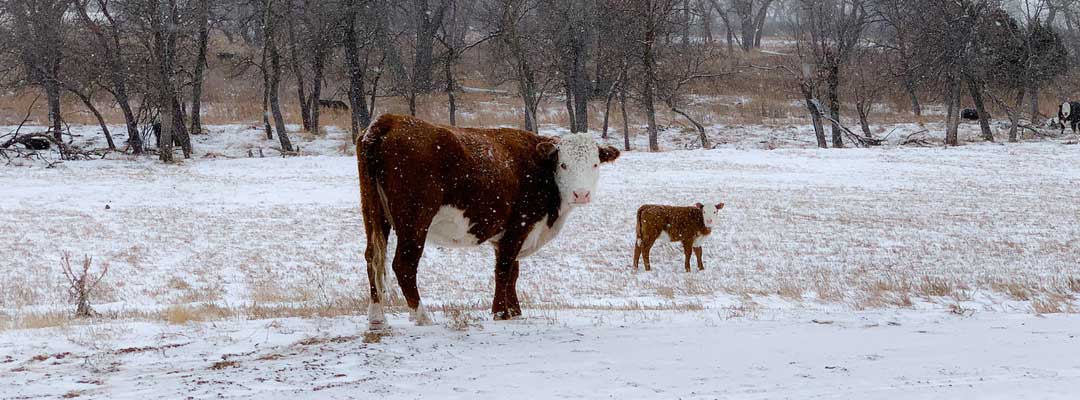Rough Winters Can Cause Weak Calf Syndrome

Cold, wet winters heighten risk for weak calf syndrome, summer pneumonia and pinkeye, according to recent reports from the Kansas State Veterinary Diagnostic Laboratory.
Following last year’s brutal winter, Kansas State University fielded numerous calls and investigated multiple cases of stillborn calves and weak calf syndrome. The number of herds and individual animals impacted by weak calf syndrome was, “in our experience, unprecedented,” said Gregg Hanzlicek, DVM, PhD, director of Production Animal Field Investigations with Kansas State University.
What is weak calf syndrome?
Also coined dummy calves or fading calves, weak calf syndrome is experienced when newborn calves are weak and unable to rise, stand and nurse. Often, these calves will not last more than three days.
What causes weak calf syndrome?
There are multiple causes of weak calf syndrome, including:
Experts at Kansas State University looked closely at the number of weak calf syndrome cases last year. They soon determined that cow nutritional issues were involved in the majority of cases. It is also likely that because of the dietary deficiencies the cows experienced, there was reduced quantity and quality of colostrum produced.
“Some of the nutritional deficiencies that can impact calf survivability are Vitamin A, Vitamin E, selenium, protein and/or energy,” Dr. Hanzlicek said. “A common question from producers whose herds were nutritionally deficient was, ‘We have always fed this way and have never seen issues like this; why would we have an issue this year?’ We certainly don’t have all the answers, but it might be that in the past when environmental conditions were not as severe, diets were sufficient, although still perhaps marginally deficient.”
When Mother Nature presents extremely cold, wet conditions, it is all the more important for cattle producers to prioritize cow herd health to help produce healthy calves.
What is the importance of cow health?
Excellent cow health can help to ensure healthy newborn calves. The cow herd is tasked with producing healthy calves, generating milk and keeping calves alive and growing, which is no small feat. However, even with all of the previously mentioned nutrient-depleting responsibilities, some cows may receive little to no supplemental nutrition. Both a cow and her calf can benefit through supplemental nutrients, such as vitamins and minerals, whether fed or given as an injection. Minerals are vital to normal tissue growth, enzyme function, cell regulation and immune response. Minerals also improve milk production, calf growth and play an important role in overall reproductive success.
5 Tips to Improve Cow Herd Nutrition for Healthier Calves:
- Ensure cows receive adequate energy requirements, which is especially crucial with long, cold winters accompanied by increased levels of moisture and mud.
- Remember that protein requirements can become deficient within such wintry conditions. You may need to increase protein levels.
- Ensure cows receive plenty of Vitamin A from quality green alfalfa or minerals that can supplement good amounts of Vitamin A.
- Incorporate adequate levels of Vitamin E from mineral mix, as well as injectable Vitamin E+AD 300 and/or Vitamin E-300.
- Administer Selenium through Multimin 90 injections, as well as consider incorporating Selenium through mineral supplements.
Following a difficult winter or spring, calves can be more likely to succumb to summer pneumonia and pinkeye. Continue reading to learn how to protect calves from these health challenges.



